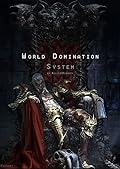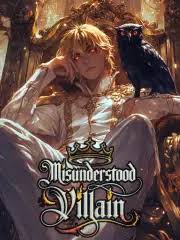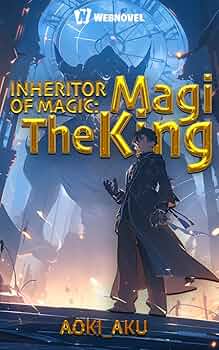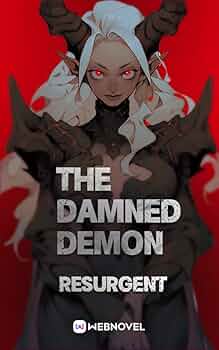The Story in 3 Sentences
Daneel, a college student struggling for cash who was left at the steps of an orphanage when he was just a month old, opts for an experiment advertised as safe but well-paid, only to fall asleep once strapped to a chair with electrodes on his head and wake up to a robotic voice in his mind.
The World Domination System awakens in his head as he finds himself transmigrated into an unknown world with a medieval fantasy setting, tasked with the ultimate goal of conquering this rapidly changing new world through cultivation and strategic empire building.
Armed with systematic guidance and his determination to lift all burdens from his adopted father’s shoulders, Daneel must navigate complex political landscapes, master cultivation techniques, and build alliances while working toward the seemingly impossible dream of world domination.
Why It Stands Out
1. System Integration Excellence
The World Domination System provides structured progression without overwhelming the narrative, offering strategic guidance and power development that feels earned rather than simply handed to the protagonist through convenient plot devices.
2. Political Complexity and Realism
The story excels at portraying realistic medieval political dynamics, showing how empire building requires diplomacy, resource management, and strategic thinking beyond simple combat prowess and cultivation advancement.
3. Character-Driven Empire Building
Rather than focusing solely on individual power, the novel emphasizes how personal relationships and loyalty systems create the foundation for lasting political change and territorial expansion.
Characters That Leave a Mark
There’s Robert Anivron, Daneel’s adoptive father known as the “Spear of Kindness” who was officially a disgraced soldier fired for abandoning the army but actually saved 20 people by disobeying a foolish but influential commander.
You’ll meet Faxul, the king of the Black Raven Kingdom who was once a talkative prince but stopped speaking after his father was murdered by someone who then seized the throne, representing the complex political dynamics Daneel must navigate.
And Kellor? He’s the former woodcutter who taught himself to control wood elementary particles with his ax, possessing incredible Crimson level comprehension that amazed everyone when he was discovered by a passing mage.
The Flaws Fans Debate
The extensive 1169+ chapter length creates pacing inconsistencies where political maneuvering sometimes overshadows character development and personal relationship progression.
Some readers find certain cultivation system explanations overly complex, with power level descriptions that can become confusing when multiple advancement paths intersect.
The world-building occasionally becomes dense with political details that may overwhelm readers more interested in personal character growth than empire management strategies.
Must-Experience Arcs
Ch. 1–200: System Awakening Foundation – Daneel discovers his transmigration situation and begins understanding the World Domination System while establishing his initial power base and cultivation foundation.
Ch. 500–700: Kingdom Building Era – The transition from personal power development to actual territorial control as Daneel begins implementing systematic conquest strategies and political alliances.
Ch. 900–1169: Sovereignty Consolidation – The final push toward true world domination as Daneel faces the ultimate challenges that test both his cultivation achievements and his empire building skills.
Killer Quotes
“World Domination System booting up. Current Unknown Host Near-death Current Survive.”
“He longed for the day when he could lift all the burdens and sorrows from his father’s shoulders.”
“Will he explore and conquer the rapidly changing new world, as the system stated? Or will he die and be forgotten within the eddies of time?”
Cultural Impact
The novel gained significant readership among system cultivation fans who appreciated the political complexity beyond typical power fantasy scenarios.
Readers particularly connected with the empire building aspects that showed how individual cultivation could translate into broader societal change through strategic leadership.
The detailed world-building attracted readers interested in medieval political systems integrated with fantasy cultivation mechanics and systematic progression elements.
Final Verdict
Start Here If You Want:
System cultivation stories that emphasize strategic empire building and political maneuvering over pure individual power advancement and combat sequences.
Complex world-building that integrates medieval politics with fantasy cultivation systems, showing how personal power translates into broader societal influence and territorial control.
Character development that balances personal growth with leadership responsibilities, exploring how individual determination can drive systematic change across entire civilizations.
Study If You Love:
Political strategy and empire building mechanics within fantasy settings, particularly how cultivation systems can support large-scale territorial conquest and governance structures.
Systematic progression that emphasizes strategic thinking and resource management alongside traditional power development, creating comprehensive approaches to world domination.
Character relationships that drive political change, showing how personal loyalty and diplomatic skills complement raw cultivation power in achieving lasting conquest goals.
Avoid If You Prefer:
Fast-paced action without extensive political complexity, as much of the story focuses on strategic planning and diplomatic maneuvering rather than constant combat sequences.
Individual power fantasy without empire management responsibilities, since the story emphasizes systematic conquest that requires ongoing territorial administration and political oversight.
Concise narratives with straightforward progression, as the 1169+ chapter length includes detailed exploration of political systems that may test reader patience with extensive world-building.





